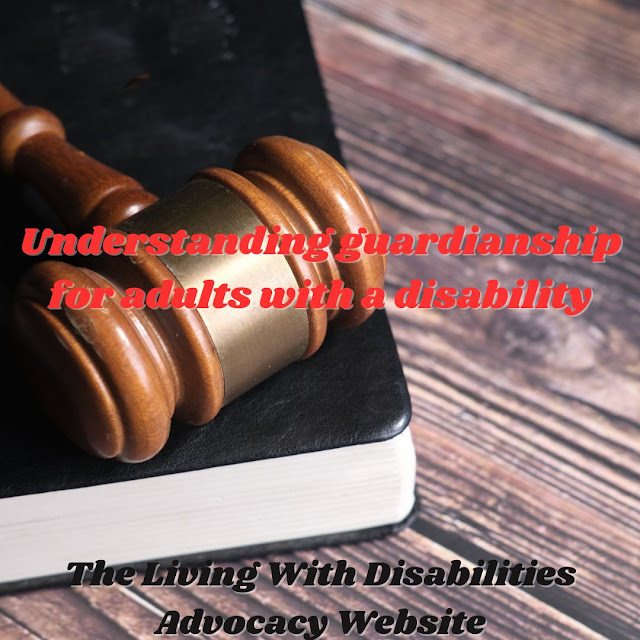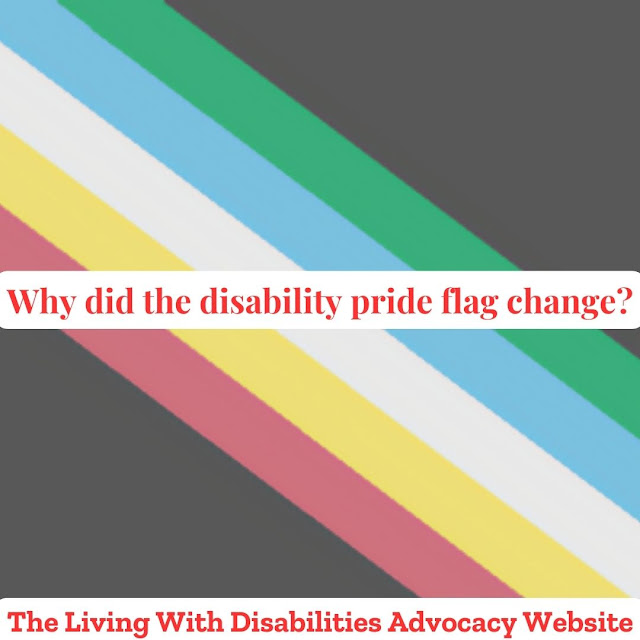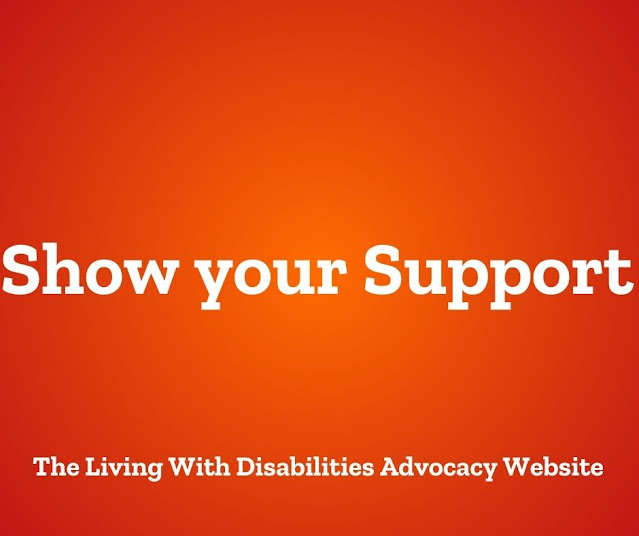What am I Doing Wrong in Advocating?
Welcome to the Living with Disabilities Advocacy website. First and foremost. Self-published author Katrina Smith, a person of many accomplishments has written six volumes in total: two cookbooks and four collections of poetry. She is currently working on her self-help/autobiography. Her favorite activities include reading and writing. Katrina would be described by one word: determined. Despite any challenges she may encounter, she does not let unkind comments decide her fate.
In this sharing, is there such a thing as a bad advocacy strategy? You want to be sure that you are advocating in the right way, whether it be for someone else or for yourself. It is important to steer clear of improper advocacy techniques at all costs. This is not a question you should be asking yourself. Is there anything wrong with my advocacy, given your desire to adhere to all things protocol? You want to be the best advocate you can be, for this reason.
Whether you are disabled yourself or not, one of the worst mistakes you can make while advocating for those with disabilities is to use ableist language. Indeed, in ableist terms, we may be our own worst enemies at times. As Aways once said, you have to be the change that you wish to see. Don't copy what you already see; instead, paint the broadest picture you like society to perceive. If you do not, nothing will change. You have to point out your own errors and ask yourself questions before others begin to point them out. Again, occasionally we can identify and fix our own errors. Therefore, in the field of advocacy, be your own fiercest judge because others won't spare you; they'll call you out for what you are. If they are polite enough, they will draw you aside and say something to you. After that, there will be some who will be steered with you. Whether the person who spoke to you directly was correct in addressing the issue, always keep note of it by jotting it down or taking a mental note. Wondering what a mental note is? No problem: instead of writing down what is being said, you are making the effort to store it in your memory. If you have a very good memory, Living with Disabilities highly recommends doing so. But if you do not have a very good memory, either keep a recorder nearby or write down what you will take away mostly from that conversation. It is highly advised to ask the person to record first. Even if it's only for yourself.
Since the topic of ableist language was raised, let's go over what it is and its many vocabulary lists.
If you're a new visitor to this advocacy website, this page aims to increase public understanding of those with disabilities and other conditions.
We suggest you seek a licensed professional counselor or healthcare provider for anything you read on this site.
This week, Living with Disabilities will talk about advocating and the wrong way to advocate.
It is important for those who have disabilities or conditions to overcome the numerous obstacles that able-bodied individuals might not see. Some disabled individuals might be wondering how they might assist in overcoming these obstacles. Let's start by emphasizing to everyone that every individual with disabilities is unique and will face unique challenges, regardless of whether they can connect to one another, before answering this excellent issue. Therefore, how they overcome these challenges may differ from one another.
Now that the issue has been answered, let's go on to the main subject, which may raise some more questions that require more clarification. It's not comical to have a disability or condition; it's like working a 24-hour job without being compensated for it.
On the other hand, those with conditions or disabilities must confront the various challenges they encounter. So, the question is: How can I take care of my issues or concerns? And will I be wrong to bring it up if I talk to someone about it? Factor here, When it comes to addressing your mental or physical health, even if it's not your mental or physical health, you're advocating for someone else who may not be mentally or physically able to advocate for themselves.
For the benefit of any beginners, let's define advocacy before we dive any further. Advocacy: What is It? A person extending assistance. And speaking up on matters that require attention is what an advocate does. They will tell you the appropriate route to take to address your problem with the appropriate person if you are someone who needs a ramp. They are a person who will speak for themselves or another's interests.
In addition to paying attention to these pointers, you should also follow your instincts when it comes to advocating. However, ensure that you have only pure intentions in your heart.
Since the topic of ableist language was raised, let's go over what it is and its many vocabulary lists. To begin with, any phrase or word that minimizes a person with a disability is considered ableist language. You should never speak those words, and if you are a person with a disability, you should not speak them either. Never forget the portrait you wish to present to the society. Would you rather look at a canvas with big print phrases that are loaded with hurtful language, or paint or draw a stunning abstract artwork with vibrant colors? Hopefully, you choose the abstract image instead of the canvas with the harsh remarks written in big font. Hatred is represented by those words, and it leaves a really bad taste in your mouth.
Now that we have given you an image of what to look at or to look forward to. Let's look at these ableist words. Some of these words really should not be on the list at all because these words have been taken from an everyday language.
Always avoid
1. The R-word, what is the R-word? Retarded.
2. Wheelchair-bound: an individual who utilizes a wheelchair can get in and out of it. They are not confined to their seats. How do you think they'll use the restroom or go to bed?
3. We have already discussed the issue of referring to someone as disabled before addressing them as an individual. Consider this: see that disabled dot, dot, dot. How does one define the term disabled? When referring to someone, always address them directly. Before all else, they are humans.
4. Victim, A person with a disability does not feel helpless or victimized by their condition. A disability might be something a person develops over time or something they are born with. We don't feel sorry for ourselves, so don't feel bad for us.
Commonly used words truly shouldn't be categorized as belonging to ableist languages. However, Living With Disabilities will share some of them. Do we agree that these words should be used in the language of ableism? No, we don't agree with their usage because these terms have other definitions. It was also not designed or constructed with people with disabilities in mind. Living with Disabilities will explain the meaning of these terms and provide examples of how they can be used in a derogatory way by society.
1. Ignorant: To imply someone with a disability is ignorant is comparable to stating they lack knowledge. It's a reality that intelligence is a strong suit for someone with a disability. They are not in the least bit ignorant.
2. Annoying: It means that you don't want to deal with someone who has a disability when you call them annoying. Sometimes questions posed to people with disabilities need to be restated or emphasized to overcome their potential for misinterpretation. We are therefore not annoying. We understand how to come and seek assistance when a problem occurs.
We have only used two words so far, but there are more terms related to disabilities in circulation. However, Living With Disabilities will only discuss two terms that are either symptoms experienced by a person with a condition or a disability of their own. We will also examine how society may interpret these terms negatively.
1. Spaz: A spasm is an uncomfortable and painful contraction of muscles. Spasms can affect anyone, but this text focuses on cerebral palsy. Can you please explain how this word became associated with ableism?
2. Bipolar: It belongs to the category of mental illnesses. How does this term fit into the list of ableist languages?
As you stroll the advocacy route, make sure your shoes fit well and that you are not stepping in tar or mud. Let's talk about seven do-not. To begin with, there can be a greater number of do-not when it comes to advocating on the list. However, Living with Disabilities has only covered seven of them.
1. Be truthful about what transpired.
2. Don't commit to anything you can't fulfill.
3. Stay out of disputes. Talk about the problems in a composed manner.
4. Avoid dealing with the problem later.
5. Never remain silent in the face of problems.
6. Steer clear of ableist terms.
7. No one is running for president when advocating; it's not an election. (not a contest)
After going over some of the things not to do, consider the kind of advocate you want to be. There are several forms of advocacy. Others will only support one disability, to mention a few. An activist or advocate for cerebral palsy, for instance, can only support those who have this condition; they may also be aware of other disabilities. But CP is the main thing they know. This does not imply that someone with a different disability cannot approach an advocate for cerebral palsy for help. They are still eligible for assistance.
Living With Disabilities Presents: The Advocacy Table
a space created for people with disabilities to be able to have freedom of speech and talk on different topics surrounding the disability community. To get more details, check out The Advocacy Table. To become a panelist, write into the show and let the host know what topic you want to talk about. She will then send out a group email to all panelists after the show has reached five or ten people. After the show, a survey will be emailed to you, and we would love to get your feedback.
If you need online support, Disability Safe Haven is great for receiving support. The We Care Team is very protective of its members and asks everyone who joins, to have a profile picture and answer the security questions.
Another online support, Living With Cerebral Palsy, is great for people with cerebral palsy and for family and friends who want to learn more about different types of cerebral palsy and how to support their loved ones who have it. This group has open and closing hours and a 24/7 chatroom. Open and closing hours are based on United States time zones.
To become a guest on Living with Disabilities
https://docs.google.com/forms/d/e/1FAIpQLScN0j1lThH8KaknxmeXIESTBC5NJWJjj9V0jubnYT5yMAffiw/viewform?usp=sf_link




Comments
Post a Comment